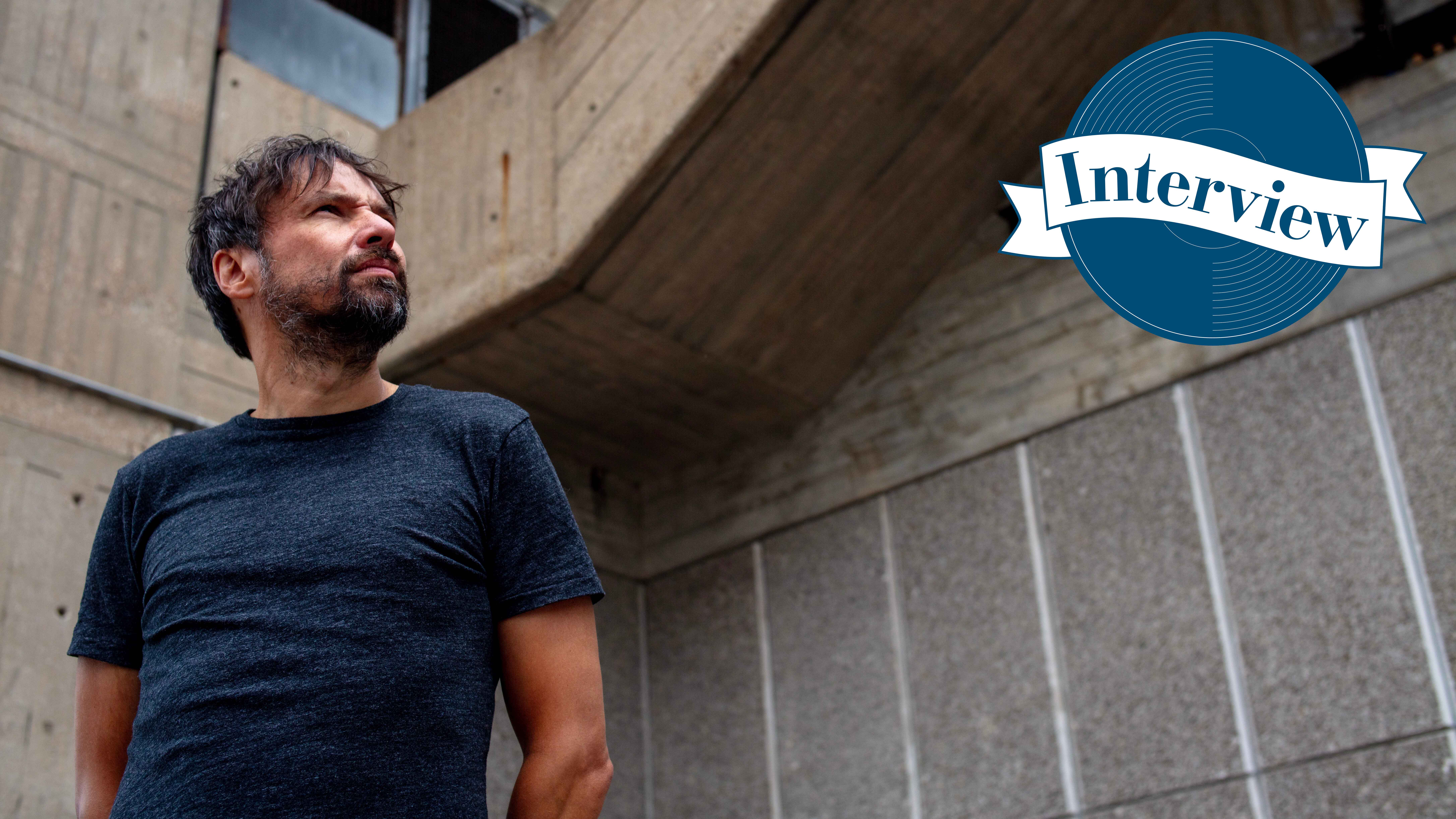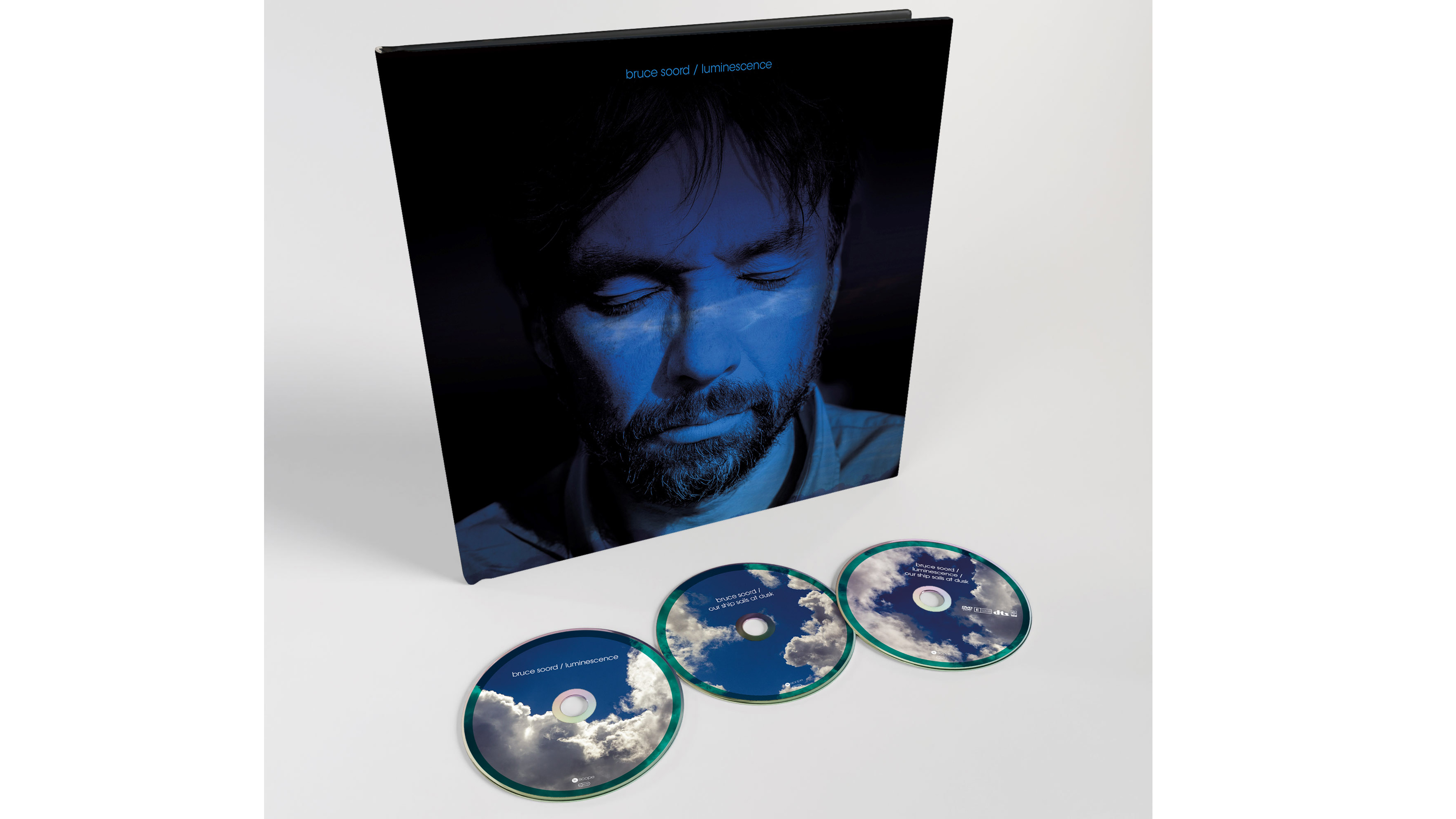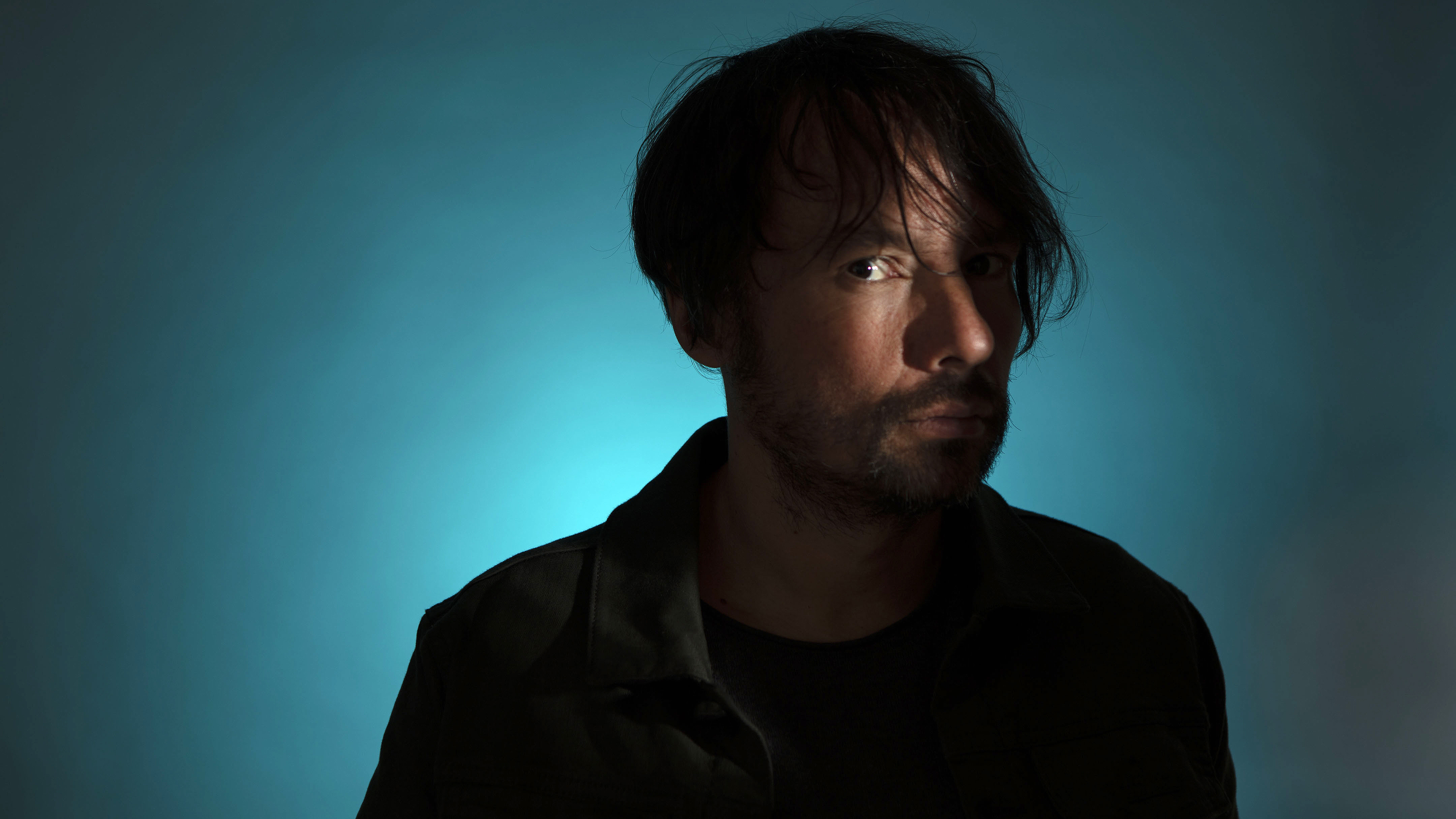The Pineapple Thief's Bruce Soord chooses his favourite acoustic albums and talks guitar and field recording for his own new solo record: "Don’t feel guilty integrating it into a song – it creates a great atmosphere to the listener"

Want all the hottest music and gear news, reviews, deals, features and more, direct to your inbox? Sign up here.
You are now subscribed
Your newsletter sign-up was successful
While Bruce Soord's musical output remains impressively consistent with his band The Pineapple Thief, his latest solo album took two years to percolate, track and reflect on. "I think there is a danger for ‘successful’ musicians to lose track of what made the songwriting special in the first place," Bruce tells MusicRadar. "By ‘successful’, I regard any musician who can make a living from music as being successful. Having all day every day to write music in your studio isn’t always the best recipe for inspiration. It’s great for recording, producing and mixing, but songwriting?"
Luminescence is Bruce's very individual take on an acoustic guitar record; field recordings, electronic rhythms, strings and textural sonic ear candy are expertly layered while still allowing breathing space for Bruce's understated but magnetic vocal melodies to shine. As a producer and songwriter, the time invested has resulted in one of Bruce's strongest collections of songs – so strong it afforded a whole second deluxe album edition of tracks to be compiled called Our Ship Sales At Dusk.
Did the ideas inspiring this album come to you when you were touring? Was there a specific experience that sparked it?
"There were a couple of The Pineapple Thief tours before (and during) the pandemic where I decided to make best use of the ‘off days’ by trying to write for an acoustic-focused solo record. I would take walks down to somewhere isolated and write words, record the ambience and return to my hotel room with my acoustic guitar and (attempt!) to write some music."
You referred to hitting a purple patch creatively at one point, when you find yourself in these kinds of creative springs, how do you best utilise the moment?
"I found myself after 18 months of songwriting with just three or four songs I was really happy with. I was at my wit's end to be honest. I looked back on my time in the studio and realised how many weeks, months even, were spent on ideas that went nowhere. It’s a horrible, depressing realisation. I took some time out from my studio and reminded myself exactly what it was I was trying to do, trying to say. Why did I become a songwriter in the first place? I came back with a real sense of purpose and energy and the songs just fell out of the guitar."
I think this begs the question of whether solo musicians need to put their faith in a producer from time to time
Did that burst of creativity allow for the whole second album, Our Ship Sails At Dusk, how did you decide how the songs would be split?
Want all the hottest music and gear news, reviews, deals, features and more, direct to your inbox? Sign up here.
"No on the contrary, the second album was probably filled with those songs I thought didn’t make the grade! But since I released the record (the second album is only available on the special edition) I’ve had a lot of messages from people telling me how much they love it. I think this begs the question of whether solo musicians need to put their faith in a producer from time to time…"
The sense of recall without any visuals, I find, is incredibly powerful in a way we are not used to in the modern, multimedia world
What did you use to make the field recordings and how did they play a part in inspiring ideas around them?
"I have a Tascam DR-05 which I permanently borrowed from our TPT keyboard player Steve Kitch (he’s still asking me for it back!). It sounds brilliant. The thing about audio-only recordings is that it invokes a very unique emotion. The sense of recall without any visuals, I find, is incredibly powerful in a way we are not used to in the modern, multimedia world.
"For the track Find Peace, I recorded the ambience down by the Hudson river where I was sitting while I waited for a TPT soundcheck in NYC. Countless benches of people sitting, looking out. When I replayed it back in my studio, it brought back such vivid emotions I immediately wrote the song."
What’s the most unusual setting or subject for a field recording you’ve made?
"I’d take it everywhere. The supermarket, the metro, hospital waiting rooms. One time I was walking in Boston and I realised I had forgot to bring my recorder. I was walking through this suburban estate when I noticed a guy smelling the drains and downpipes from people's houses. He came up to me and started explaining how amazing the smell of people’s drainage pipes and drains were. If only I had my recorder!"
Do you have any advice to someone who has never considered integrating field recordings in their music but would like to?
"Try it! Take it with you, record everything. Listen back sometime later and see what jumps out. And don’t feel guilty integrating it into a song – it creates a great atmosphere to the listener. A unique way of sharing a place and time. Oh and make sure you have a decent windshield. It’s easy to forget how thick air is – the smallest draft of wind can render a recording useless."

What role does acoustic guitar usually play in your songwriting?
"When you’re writing acoustic parts are you learning to sing and play simultaneously or do you tend to deal with that later when you know what will be on a tour setlist?
"It’s always together, although often I’ll just be humming nonsensical syllables and words. Although when I look back, quite often the words that come out when I am not thinking consciously about lyric writing, often get used. There is sometimes a challenge later on when you have to figure out how to do it live, especially when the rhythm of the vocal is counter to the rhythm of the guitar. Sometimes I’ll sit there thinking ‘I'll never be able to do this live’ but actually, practise really does make perfect."
Quite often the words that come out when I am not thinking consciously about lyric writing, often get used
When you’re writing acoustic parts are you learning to sing and play simultaneously or do you tend to deal with that later when you know what will be on a tour setlist?
"It’s always together, although often I’ll just be humming nonsensical syllables and words. Although when I look back, quite often the words that come out when I am not thinking consciously about lyric writing, often get used. There is sometimes a challenge later on when you have to figure out how to do it live, especially when the rhythm of the vocal is counter to the rhythm of the guitar. Sometimes I’ll sit there thinking, ‘I'll never be able to do this live’ but actually, practice really does make perfect."
What are your go-to acoustic guitars for writing and recording?
"Taylors. I was really lucky to be loaned some for a TPT tour and I loved them so much I bought them."
I’m not sure how they do it, but the Taylors sound great plugged in
How do you tend to overcome some of the challenges with live acoustic tones - eg piezo tones etc?
"Yeah, it’s the biggest annoyance of a lot of live acoustic shows, that horrible DI piezo tone that bears no resemblance to the acoustic sound of the guitar. I’m not sure how they do it, but the Taylors sound great plugged in. I remember mixing a live recording and my mastering engineer (Steve Kitch) asked me how long it took me to re-record all the acoustics. I told him there were no overdubs – he couldn’t believe he was hearing the DI sound."

Many players have been utilising the potential of modellers like Helix for electro-acoustic sound, do you have an acoustic rig that integrates that kind of technology?
"I’ve never had much success with modellers turning a standard electric DI into a believable acoustic although I’ve noticed a lot of progress recently, so I should revisit it. However, I have made a lot of use of the Yamaha Variax guitars, which use the piezo pickup in the bridge to do the modelling at the source. As I have so many different open tunings (not to mention a baritone acoustic guitar) it made touring a bit tricky. Too many guitars, too many guitar tunings and changes!
"Gavin Harrison (the drummer for TPT) went on and on about the Variax until I bought one just to keep him quiet. I was sceptical at first, but after quite a bit of experimentation I was able to get a really realistic acoustic guitar from my electric – I use the JTV-59. It means I can switch tunings really fast and even switch from acoustic strumming to an electric solo mid-song. This worked really well for my solo tour, although it does add an extra layer of simultaneous pedal pushing and button pushing!"
My advice is to ignore the forums and use your ears
There’s some lovely acoustic guitar reverb sounds and the acoustics across the album sound great in general – do you have any go-to plugins or mic’ing techniques you can recommend?
"Ah, I’m glad you like the tone of the guitars. It’s something I’ve been working on for a long time. Obviously the most important thing is the source – when I got the Taylors my recorded sound was transformed. However, there is a huge difference in sound depending on how you mic the guitar too. I use a stereo pair, actually a pair of humble Rode NT-5s. I tried a blind test with some really expensive ‘industry standard’ alternatives but the Rode came out top.
"I place one over the top of the neck, really close, which captures a really nice high-end tone and character of the fingers and strings. The other one goes close to the body, just below the sound hole (never over the sound hole). I then pan the two mics (how far is down to taste). My advice is to ignore the forums and use your ears. Move around until it sounds good and then try not to move when you are playing! And if using multiple mics, invest in a phase alignment plugin.
"And I’m glad you noticed the reverbs too. One thing I love about acoustic guitars is how they sit perfectly with lush, big reverbs. My go-to reverbs for this purpose aren’t the ones trying to recreate a perfect space. I prefer the ‘vintage’ sounds of the Valhalla VintageVerb and the Softube developed RC-24 which came with Native Instruments Komplete, that’s great for creating long, atmospheric (and totally unrealistic!) reverb tails."
How do you feel about the challenge of performing solo – is something you'd like to do more of?
"It’s much more of a challenge. As a performer you are more exposed, it’s more of a fragile experience. Get it right and it’s a great feeling. I’d definitely like to do more of it, a glutton for punishment."
Bruce Soord's five favourite acoustic albums
1. Al Stewart –Zero She Flies (1970)
"Very raw but pretty much all about the acoustic guitar and vocal."
2. Colin Blunstone – One Year (1971)
"The soft acoustic nature of the music combined with his unbelievably melancholic voice."
3. Nick Drake – Five Leaves Left (1969)
"It wasn’t until later in my life that I realised that the album I should have started with was Five Leaves Left by Nick Drake. With hindsight, clearly the influential record of the genre. For some reason I was never introduced to it until later in my life."
4. America – Homecoming (1972)
"In terms of killer songwriting and performance America’s Homecoming has to be in my top five. The thing about the early 1970s recordings is that they were going through a revolution in recording technology.
"This album sounds great, is all about the vocal hooks and acoustic guitars."
5. Beck – Sea Change (2002)
"In terms of a record that hit me like no other in this genre, it has to be Sea Change by Beck. Songwriting, the fidelity, the performance (not just Beck but his band) and the outstanding string arrangements. Absolutely timeless."
- Luminescence is out now via Kscope – more info here. The Pineapple Thief tour in Europe in February and March 2024. More info at pineapplethief.com

Rob is the Reviews Editor for GuitarWorld.com and MusicRadar guitars, so spends most of his waking hours (and beyond) thinking about and trying the latest gear while making sure our reviews team is giving you thorough and honest tests of it. He's worked for guitar mags and sites as a writer and editor for nearly 20 years but still winces at the thought of restringing anything with a Floyd Rose.